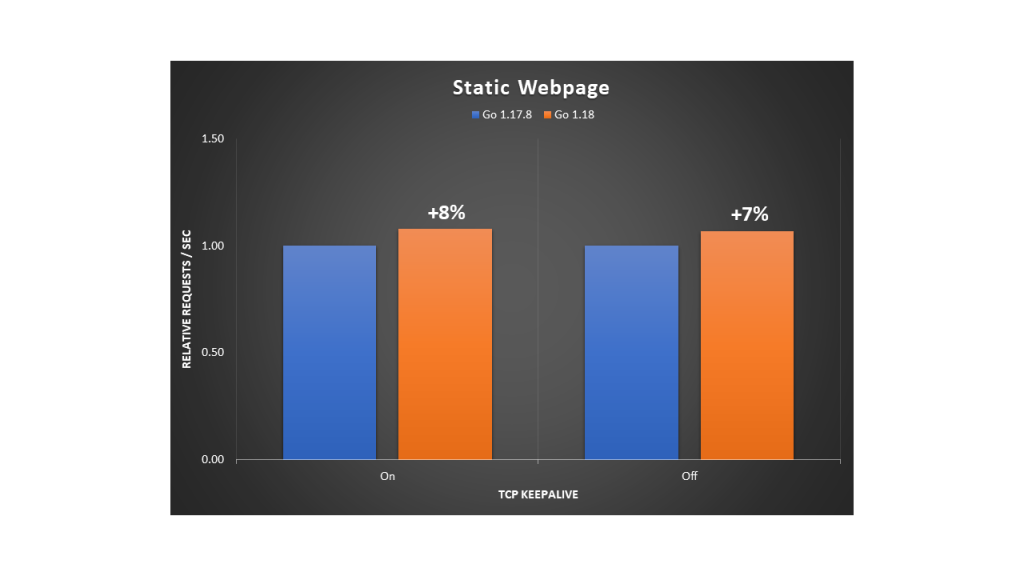AWS Compute Blog
Tag: machine learning
Best practices to optimize your Amazon EC2 Spot Instances usage
This blog post is written by Pranaya Anshu, EC2 PMM, and Sid Ambatipudi, EC2 Compute GTM Specialist. Amazon EC2 Spot Instances are a powerful tool that thousands of customers use to optimize their compute costs. The National Football League (NFL) is an example of customer using Spot Instances, leveraging 4000 EC2 Spot Instances across more […]
Our guide to AWS Compute at re:Invent 2022
This blog post is written by Shruti Koparkar, Senior Product Marketing Manager, Amazon EC2. AWS re:Invent is the most transformative event in cloud computing and it is starting on November 28, 2022. AWS Compute team has many exciting sessions planned for you covering everything from foundational content, to technology deep dives, customer stories, and even […]
Making your Go workloads up to 20% faster with Go 1.18 and AWS Graviton
This blog post was written by Syl Taylor, Professional Services Consultant. In March 2022, the highly anticipated Go 1.18 was released. Go 1.18 brings to the language some long-awaited features and additions, such as generics. It also brings significant performance improvements for Arm’s 64-bit architecture used in AWS Graviton server processors. In this post, we […]
Hosting Hugging Face models on AWS Lambda for serverless inference
This post written by Eddie Pick, AWS Senior Solutions Architect – Startups and Scott Perry, AWS Senior Specialist Solutions Architect – AI/ML Hugging Face Transformers is a popular open-source project that provides pre-trained, natural language processing (NLP) models for a wide variety of use cases. Customers with minimal machine learning experience can use pre-trained models […]
Pay as you go machine learning inference with AWS Lambda
In this blog post, you train an XGBoost breast cancer model using Python packages installed on an Amazon EFS file system. You create an AWS Lambda function that loads the Python packages and the model from EFS file system, and perform the predictions.
TensorFlow Serving on Kubernetes with Amazon EC2 Spot Instances
This post is contributed by Kinnar Sen – Sr. Specialist Solutions Architect, EC2 Spot TensorFlow (TF) is a popular choice for machine learning research and application development. It’s a machine learning (ML) platform, which is used to build (train) and deploy (serve) machine learning models. TF Serving is a part of TF framework and is […]
Using artificial intelligence to detect product defects with AWS Step Functions
Factories that produce a high volume of inventory must ensure that defective products are not shipped. This is often accomplished with human workers on the assembly line or through computer vision. You can build an application that uses a custom image classification model to detect and report back any defects in a product, then takes […]
Leveraging Elastic Fabric Adapter to run HPC and ML Workloads on AWS Batch
Leveraging Elastic Fabric Adapter to run HPC and ML Workloads on AWS Batch This post is contributed by Sean Smith, Software Development Engineer II, AWS ParallelCluster & Arya Hezarkhani, Software Development Engineer II, AWS Batch and HPC On August 2, 2019, AWS Batch announced support for Elastic Fabric Adapter (EFA). This enables you to run highly […]
Scheduling GPUs for deep learning tasks on Amazon ECS
This post is contributed by Brent Langston – Sr. Developer Advocate, Amazon Container Services Last week, AWS announced enhanced Amazon Elastic Container Service (Amazon ECS) support for GPU-enabled EC2 instances. This means that now GPUs are first class resources that can be requested in your task definition, and scheduled on your cluster by ECS. Previously, […]
Running GPU-Accelerated Kubernetes Workloads on P3 and P2 EC2 Instances with Amazon EKS
This post contributed by Scott Malkie, AWS Solutions Architect Amazon EC2 P3 and P2 instances, featuring NVIDIA GPUs, power some of the most computationally advanced workloads today, including machine learning (ML), high performance computing (HPC), financial analytics, and video transcoding. Now Amazon Elastic Container Service for Kubernetes (Amazon EKS) supports P3 and P2 instances, making […]









